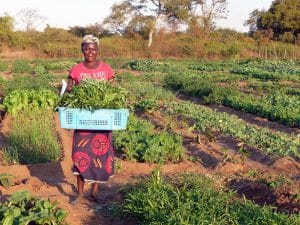Canada celebrates International Women’s Day
Canadian Jesuits International (CJI) celebrated International Women’s Day this year by focusing on two of the projects they support, where women leaders are making major contributions to the transformation of women’s lives and of their communities as a whole.
Lok Manch in India
Lok Manch (Peoples Forum) is a country-wide mobilization program that helps marginalized people in India to know their legal rights and increase their access to entitlements, especially the right to food as stipulated in the National Food Security Act. It is comprised of about 100 Jesuit and lay organizations from 12 states and is envisioned as a movement of and by dalits, adivasis, women, the urban poor and other excluded communities.
Already 3,000 community leaders (of a projected 5,000) have been trained, 50% of whom are women. They work with communities to provide up-to-date information on entitlements, how to access these entitlements and what to do if there are shortcomings in the system.
Mindful of the sad plight of the women due to the patriarchal mind-set of men and the society at large and taking note of the massive violation of human rights of women displayed in the form of dowry deaths, murder of unwanted infant girls, women being treated as objects, sex tourism, domestic violence, etc.;
Mindful of the fact that the marginalised women especially the Adivasis [and] dalits are doubly oppressed being part of these groups and women and are deprived of socio-cultural, politico-economic, civic and religious rights leading to marginalisation and exclusion;
We, the members of Lok Manch set an agenda for ourselves to promote gender equality and equity
Training of organic farmers in Zambia
Together with Global Affairs Canada (GAC), CJI supported a three-year training program at Kasisi Agricultural Training Centre (KATC) in Zambia for 100 farmers, more than 50% of whom were women. The results of this program were amazing.

(Photo: E. Kaas/CJI)
In some cases women farmers quadrupled their incomes over the three-year period by switching to organic farming, introducing much greater crop diversity, and forming agricultural cooperatives. Their training contributed directly to food security, healthier families, better housing, education for their children, a higher standard of living and new leadership positions.
KATC annually surveyed all project farmers on 9 standardized elements of gender equality [which were subsequently reported] in 3 thematic clusters: women’s participation; women’s equal access to agricultural services and resources; and women’s equal agricultural benefit.
The projects success in promoting gender equality was objectively demonstrated by its gender-disaggregated data on agricultural and economic results, as well as by the proportion of women on farmer-association executives.
